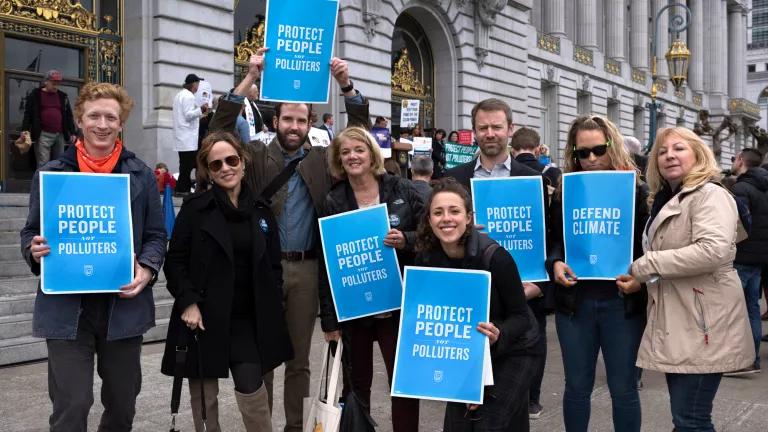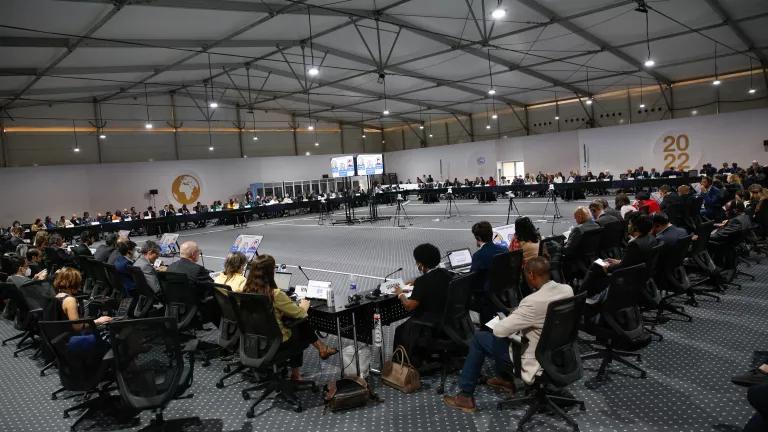
Co-authored with Mitchell Beer, Smarter Shift
"On behalf of 35 million Canadians, we're back."
Those were Prime Minister Justin Trudeau's first words to his country's international friends and allies, the day after his Liberal Party won a majority in the House of Commons and swept away a decade of rule by Stephen Harper's Conservatives.
Three weeks after the election, the specifics of the Trudeau government's climate and energy policies are still not clear. Speaking from Paris yesterday, Environment and Climate Change Minister Catherine McKenna told reporters the Harper government's previous national commitment--30% by 2030, from a 2005 baseline--will be a floor, not a ceiling, and the new government hopes to better.
But with a make-or-break United Nations climate summit opening in Paris November 30, and the French government hosting pre-summit ministerials this week, the country's detailed decarbonization agenda is still on hold pending discussions with Canada's 13 provincial and territorial premiers. The results of that process will be an early test of the Liberals' campaign promise of "real change".
A Good Start
The early moves are promising. At a swearing-in ceremony last week, Trudeau named McKenny, an international human rights lawyer and rookie Member of Parliament as Minister of Environment and Climate Change. A job title, need it even be said, that would never have entered ex-PM Harper's mind.
We also applaud the appointment of McKenna's chief of staff is Marlo Raynolds, a former executive director of the Pembina Institute, a non-profit energy think tank and frequent NRDC collaborator.
To the influential Foreign Affairs post, Trudeau appointed Stéphane Dion, a former environment minister who chaired a UN climate conference in Montreal in 2005, named his dog Kyoto, and drove a hybrid vehicle before hybrids were cool.
Dion will chair a new Cabinet Committee on Environment, Climate Change and Energy. Along with McKenna, committee members include the ministers of trade, agriculture, Indigenous affairs, innovation, energy, infrastructure and communities, fisheries, and science--most of the departments that are central to the country's response to climate change.
Oh, and Canada has two science ministers. One of them is a medical geographer who shared the 2007 Nobel Peace Prize as a member of the Intergovernmental Panel on Climate Change. On Friday, the outpouring of joy went viral when the new government put an end to Harper-era restrictions that banned federal scientists from communicating with the media or the general public.
NRDC welcomes these appointments of two ministers with such a commitment to social justice and human rights, as well as United Nations and climate change experience.
The Real Work Begins Now
So far, the Trudeau government is garnering high marks for getting the important but easy stuff right. In a weird way, the Liberals almost owe a word of thanks to departing PM Harper: after 10 years of open hostility to climate action, scientific evidence, or the slightest whiff that their government might "commit sociology", Canadians are hungry for any sign or symbol of positive change.
But symbols are just the start. The first measure of Trudeau's climate and energy strategy came Friday, when President Obama announced that the State Department had rejected TransCanada Corporation's application to build the controversial Keystone XL pipeline. Reviews are mixed on whether Trudeau passed the test.
When Trudeau expressed disappointment at the decision, some Canadian climate hawks lit up social media with criticisms and told-you-so's. But Obama also opened a door to a bilateral relationship that is about more than one project and one fuel, and Trudeau responded in kind.
It Starts With Mutual Respect
The good news is that both Obama and Trudeau quickly shifted from their disagreement over the rejection of Keystone XL to where they could agree. "We both agreed that our close friendship on a whole range of issues, including energy and climate change, should provide the basis for even-closer coordination between our countries," the President said.
"[We] respect the right of the United States to make the decision," Trudeau replied. "The Canada-U.S. relationship is much bigger than any one project, and I look forward to a fresh start with President Obama to strengthen our remarkable ties in a spirit of friendship and cooperation."
That's a sea change from a previous regime that "poked and prodded, annoyed and irritated the Obama administration at every turn," as Trudeau put it in an October 2013 speech at Calgary's Petroleum Club. "Largely, I suspect, because they don't know how to work with people who don't share their ideology."
At DeSmog Canada, writer Heather Libby and Director of Research Carol Linnitt concluded that "Trudeau's response to the Keystone XL approval should be seen less as a sign of him being a pipeline supporter and more as a sign of a calculated attempt to be consistent on his Keystone position, while repairing tattered diplomatic relations with the U.S. and gesturing toward regulating carbon emissions."
The Road to Paris
The Trudeau government won't have time to strengthen Canada's lukewarm greenhouse gas target in time for this year's UN climate summit. But the country can still contribute to a robust agreement in Paris.
The question still is how to align the patchwork of climate policies of the provinces and territories with the country's international commitments. Before the election, Trudeau vowed to consult with the premiers before setting national carbon reductions. The jury is still out how the federal government will harness the strong commitments that have already been made by some provinces (e.g. Quebec and Ontario) with the need for the country to deliver a national plan as part of the international conversation.
So instead of a new carbon target, a much-expanded Canadian delegation will arrive in Paris with a new attitude. And it may arrive bearing gifts.
"If Canada actually shows it's serious that it's back, that we understand that the science behind climate change is real, that we need to be taking action, that we need to be looking at what measures we can take to reduce emissions, I think that will send an extraordinarily strong signal," McKenna said on the eve of the pre-summit ministerial.
"The plan is to show we are committed to finding solutions, and the first way you do that is by being engaged and at the table." We couldn't agree more and are eager to see what unfolds in the coming weeks and months.
Looking ahead to the summit, veteran CBC reporter Nahlah Ayed added that "one of the big sticking points is how to help developing countries cut their emissions and deal with the effects of global warming." And "officials say that's one tangible way Canada is likely to contribute: putting money on the table."



